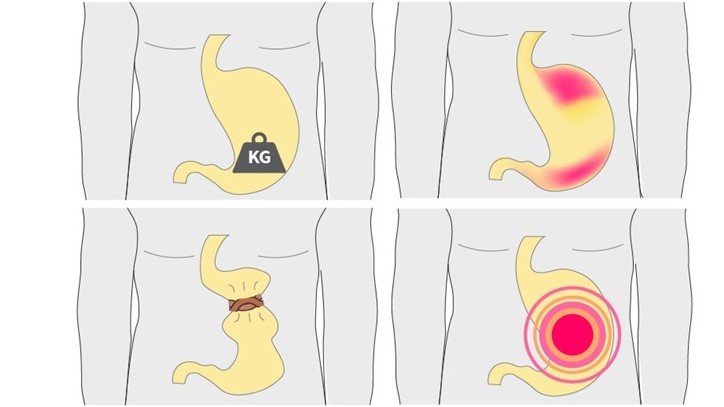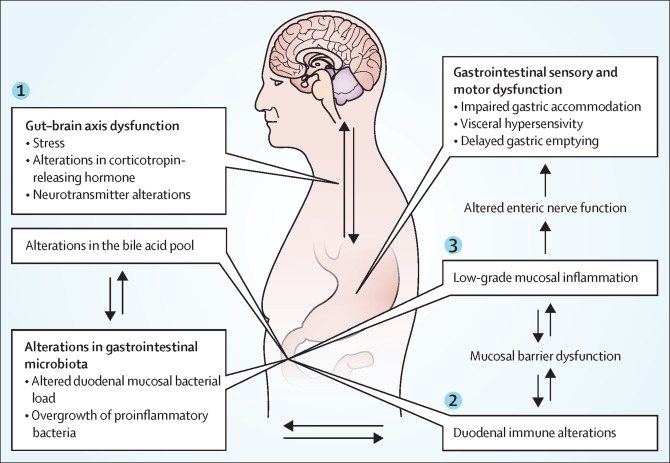
If you’re experiencing a variety of dyspepsia symptoms, you should seek medical attention. You may have underlying medical conditions that are causing your stomach pain. Your doctor will order tests to determine the cause of your symptoms. Upper gastrointestinal endoscopy, or GERD, is a lighted tube that is inserted into the stomach to examine the digestive tract. If your GI tract is not normal, your doctor may recommend surgery to correct the problem.
In some cases, lifestyle changes can help alleviate symptoms. If you’re overweight, try eating smaller meals more often and refraining from smoking. Other lifestyle changes can ease symptoms, including limiting caffeine and alcohol consumption and avoiding large meals three hours before bedtime. A doctor can also order tests to determine if you have bacterial overgrowth in the esophagus or if you’re lactose intolerant. Some medications can worsen symptoms and you should avoid them if they don’t help. Some drugs can cause a peptic ulcer, such as aspirin and non-steroidal anti-inflammatory drugs. You should consult your doctor before using any medications that are not prescribed by your doctor.
Over-the-counter medications and prescription medicines can treat the symptoms of dyspepsia. Many of these medications will reduce the amount of acid in the stomach, but your doctor can prescribe an over-the-counter medication to alleviate the pain. The best treatment for your particular case will depend on your symptoms and your overall health. There are also a variety of other options for treating your symptoms, including visits to a gastroenterologist.
Medications that relieve the symptoms of dyspepsia include antacids, proton pump inhibitors, and histamine blockers. You can also treat your condition by taking medications that reduce the amount of acid in your stomach. A doctor may prescribe certain types of antacids, painkillers, and antibiotics for helicobacter pylori. The best treatment for your condition will depend on the underlying medical issues.
There are many ways to treat dyspepsia, including lifestyle changes. The most common treatment is changing your diet and avoiding alcohol, which can result in an increase in stomach acid levels. A doctor may also recommend anti-inflammatory pain relievers. However, if the symptoms persist, it’s time to seek medical attention. Your doctor can prescribe an antibiotic for dyspepsia and a dietary supplement to reduce the symptoms.
Medications for dyspepsia are used to relieve symptoms of non-ulcer dyspepsia. These medicines may include antacids and a steroid for the stomach. In some cases, the treatment may be as simple as reducing your alcohol intake. Medications for dyspepsial GERD can help you manage your condition with a healthier diet and lifestyle.

Symptoms of dyspepsia are often recurrent, and treatment for them depends on the cause. The most common causes are stress and a dietary change. A sour stomach can cause indigestion. An overproduction of gastric acid can also cause severe heartburn. The symptoms are often accompanied by a bacterial overgrowth in the esophagus. In addition to lifestyle changes, medications for dyspepsia can include antacids, proton pump inhibitors, and histamine blockers.
In addition to lifestyle changes, your doctor may also recommend certain types of medications to help control indigestion. Symptoms, which include indigestion, are caused by acid in the stomach. This may be caused by bacterial overgrowth. In such cases, a doctor may recommend antibiotics to fight the infection. If you experience dyspepsia, you should consult a doctor. Your doctor may recommend that you take some of these medications and monitor your progress.
In addition to lifestyle changes, a doctor may prescribe medication to relieve symptoms. In addition to antacids, pain relievers can help soothe an upset stomach. If your doctor prescribes an NSAID, he or she will consider a course of action to help improve symptoms and reduce the chance of bacterial overgrowth. If you regularly experience these symptoms, you should seek medical attention.
The first thing to remember is that the experts on the health website sarjana.co.id/
can recommend various medications to help relieve indigestion. Often the pain you are experiencing is a symptom of another medical condition. If you experience indigestion that is accompanied by blood, you should contact your doctor immediately. If you suffer from indigestion, you should avoid coffee, fatty foods, spicy and sour foods.